第23章
"No," explained the Human Document, in the same quick, even tones;"so far as I was concerned, I was not conscious of any alteration in my own attitude. But he felt the need of more solitude--for his development. We parted quite good friends.""Oh," said Miss Tolley. "And were there any children?""Only two," answered the Human Document, "both girls.""What has become of them?" persisted Miss Tolley.
The Human Document looked offended. "You do not think I would have permitted any power on earth to separate them from me, do you?" she answered. "I said to him, 'They are mine, mine. Where I go, they go. Where I stay, they stay.' He saw the justice of my argument.""And they are with you now?" concluded Miss Tolley.
"You must come and see them," the Human Document insisted. "Such dear, magnetic creatures. I superintend their entire education myself. We have a cottage in Surrey. It's rather a tight fit.
You see, there are seven of us now. But the three girls can easily turn in together for a night, Abner will be delighted.""Abner is your second?" suggested Miss Tolley.
"My third," the Human Document corrected her. "After Eustace, Imarried Ivanoff. I say 'married' because I regard it as the holiest form of marriage. He had to return to his own country.
There was a political movement on foot. He felt it his duty to go.
I want you particularly to meet the boy. He will interest you."Miss Tolley appeared to be getting muddled. "Whose boy?" she demanded.
"Ivanoff's," explained the Human Document. "He was our only child."Flossie appeared, towing a white-haired, distinguished-looking man, a Mr. Folk. She introduced him and immediately disappeared. Joan wished she had been left alone a little longer. She would like to have heard more. Especially was she curious concerning Abner, the lady's third. Would the higher moral law compel him, likewise, to leave the poor lady saddled with another couple of children? Or would she, on this occasion, get in--or rather, get off, first?
Her own fancy was to back Abner. She did catch just one sentence before Miss Tolley, having obtained more food for reflection than perhaps she wanted, signalled to her secretary that the note-book might be closed.
"Woman's right to follow the dictates of her own heart, uncontrolled by any law," the Human Document was insisting: "That is one of the first things we must fight for."Mr. Folk was a well-known artist. He lived in Paris. "You are wonderfully like your mother," he told Joan. "In appearance, Imean," he added. "I knew her when she was Miss Caxton. I acted with her in America."Joan made a swift effort to hide her surprise. She had never heard of her mother having been upon the stage.
"I did not know that you had been an actor," she answered.
"I wasn't really," explained Mr. Folk. "I just walked and talked naturally. It made rather a sensation at the time. Your mother was a genius. You have never thought of going on the stage yourself?""No," said Joan. "I don't think I've got what you call the artistic temperament. I have never felt drawn towards anything of that sort.""I wonder," he said. "You could hardly be your mother's daughter without it.""Tell me," said Joan. "What was my mother like? I can only remember her as more or less of an invalid."He did not reply to her question. "Master or Mistress Eminent Artist," he said; "intends to retire from his or her particular stage, whatever it may be. That paragraph ought always to be put among the obituary notices.""What's your line?" he asked her. "I take it you have one by your being here. Besides, I am sure you have. I am an old fighter. Ican tell the young soldier. What's your regiment?"Joan laughed. "I'm a drummer boy," she answered. "I beat my drum each week in a Sunday newspaper, hoping the lads will follow.""You feel you must beat that drum," he suggested. "Beat it louder and louder and louder till all the world shall hear it.""Yes," Joan agreed, "I think that does describe me."He nodded. "I thought you were an artist," he said. "Don't let them ever take your drum away from you. You'll go to pieces and get into mischief without it.""I know an old actress," he continued. "She's the mother of four.
They are all on the stage and they've all made their mark. The youngest was born in her dressing-room, just after the curtain had fallen. She was playing the Nurse to your mother's Juliet. She is still the best Nurse that I know. 'Jack's always worrying me to chuck it and devote myself to the children,' she confided to me one evening, while she was waiting for her cue. 'But, as I tell him, I'm more helpful to them being with them half the day alive than all the day dead.' That's an anecdote worth remembering, when your time comes. If God gives woman a drum he doesn't mean man to take it away from her. She hasn't got to be playing it for twenty-four hours a day. I'd like you to have seen your mother's Cordelia."Flossie was tacking her way towards them. Joan acted on impulse.
"I wish you'd give me your address," she said "where I could write to you. Or perhaps you would not mind my coming and seeing you one day. I would like you to tell me more about my mother."He gave her his address in Paris where he was returning almost immediately.
"Do come," he said. "It will take me back thirty-three years. Iproposed to your mother on La Grande Terrasse at St. Germain. We will walk there. I'm still a bachelor." He laughed, and, kissing her hand, allowed himself to be hauled away by Flossie, in exchange for Mrs. Phillips, for whom Miss Lavery had insisted on an invitation.